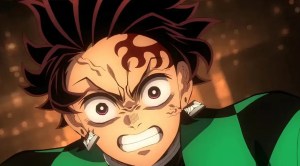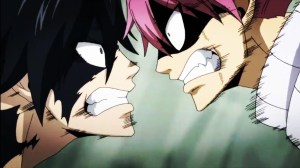It’s widely accepted that The Dark Knight was, in some ways, a commentary on the post-9/11, War on Terror America of former President George W. Bush. What’s a little less widely accepted–but seems obvious when you look at it–is that the first film had a very Kennedy philosophy to it.From Thomas Wayne’s redistribution of wealth and hoping to be the shining beacon that inspired people to be better, to the overt reference to a famed John F. Kennedy quote about good people doing nothing (one he actually borrowed from a number of previous users–but still, it’s widely associated with him), there’s a little bit of Kennedy hiding between the cracks of this movie.If you want to really reach you can even talk about the fact that not only did Thomas Wayne look a little bit like Robert F. Kennedy did in his last moments after being shot (actor Linus Roache, who played Thomas Wayne, actually played Bobby in a 2002 film called RFK), but that the assassination of Joe Chill had some pretty obvious parallels to the assassination of Lee Harvey Oswald.All of this draws even more attention to the idea that The Dark Knight Rises seems to be revolving around a grassroots social movement not dissimilar to Occupy Wall Street. Even if Nolan rejects similarities to Occupy (and he’s being honest–let’s face it: the script was written before Occupy was really a thing), the similarities between OWS and A Tale of Two Cities, upon which he admits the film is partially based, are striking—and when you consider the social conditions that Occupy rose to prominence, the protest movement was actually pretty predictable.Whenever law enforcement takes a more active and aggressive interest in policing the routine activities of its people (as happened after 9/11), there are those who take umbrage and social movements are born. It’s a pattern that’s been repeated throughout history enough times to make it seem in hindsight like something Manhattan could have planned for. There’s also the additional fact that income disparity in the U.S. has been on the rise since the late ’60s, and that sooner or later the lower-middle-class people who are struggling to make ends meet will begin to resent the people eating $600, 3-martini lunches.Taking these ideas into account, Nolan’s Batman trilogy almost becomes a political biography of a city: During and after the depression referenced in the first film, the rich lived high on the hog, while the rest of the city was plagued by poverty and crime. Thomas Wayne saw that this was not a sustainable way of living life, and tried to do something about it, only to ironically see many of his goals succeed only after his own death spurred his contemporaries into action.It’s probably not a coincidence that Thomas Wayne’s story is not entirely unlike all the progressive legislation Lyndon Johnson got through after John F. Kennedy died in that regard, by the way.










